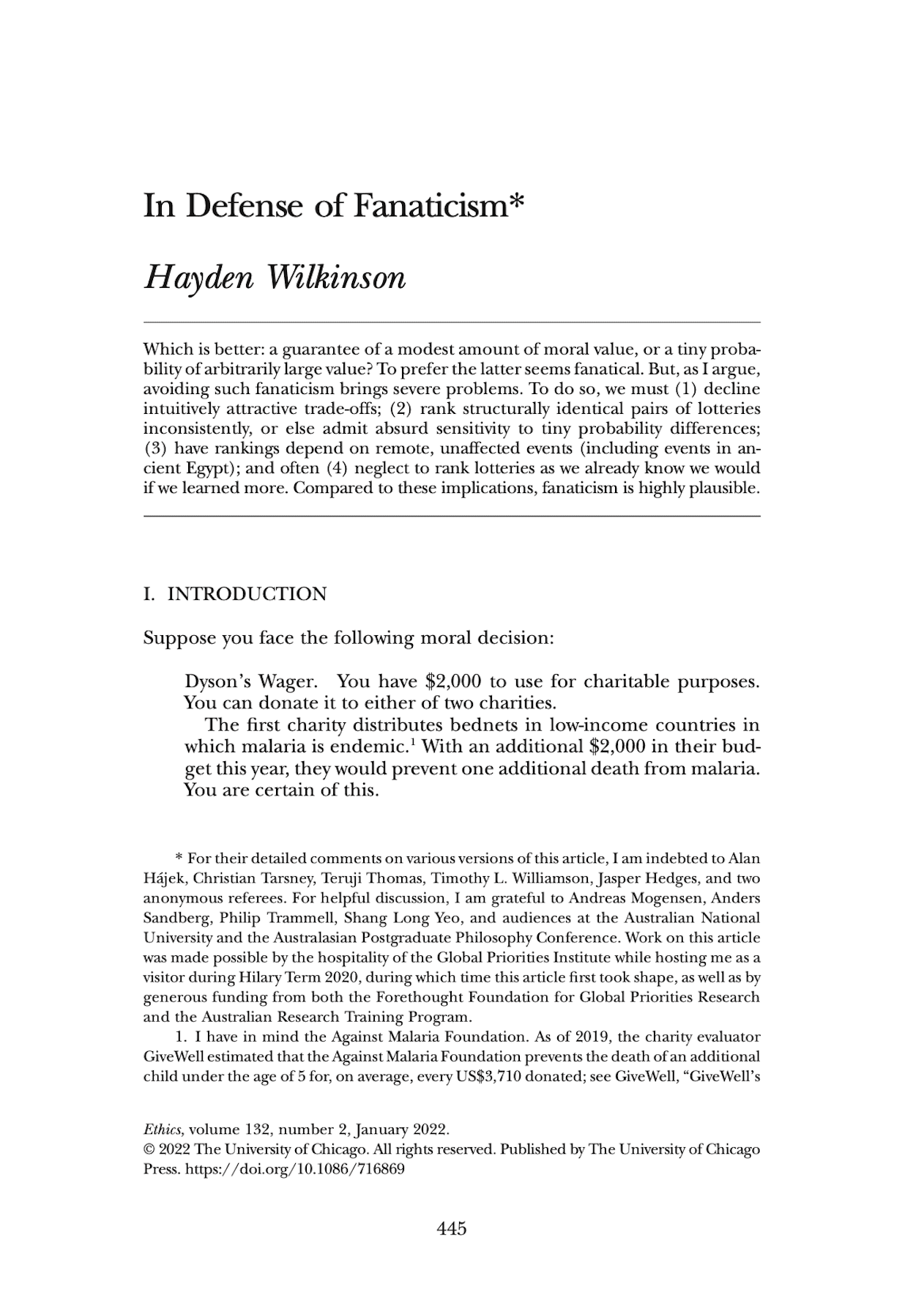In defence of fanaticism
Hayden Wilkinson (Australian National University)
GPI Working Paper No. 4-2020, published in Ethics
Which is better: a guarantee of a modest amount of moral value, or a tiny probability of arbitrarily large value? To prefer the latter seems fanatical. But, as I argue, avoiding such fanaticism brings severe problems. To do so, we must (1) decline intuitively attractive trade-offs; (2) rank structurally identical pairs of lotteries inconsistently, or else admit absurd sensitivity to tiny probability differences;(3) have rankings depend on remote, unaffected events (including events in ancient Egypt); and often (4) neglect to rank lotteries as we already know we would if we learned more. Compared to these implications, fanaticism is highly plausible
Other working papers
Evolutionary debunking and value alignment – Michael T. Dale (Hampden-Sydney College) and Bradford Saad (Global Priorities Institute, University of Oxford)
This paper examines the bearing of evolutionary debunking arguments—which use the evolutionary origins of values to challenge their epistemic credentials—on the alignment problem, i.e. the problem of ensuring that highly capable AI systems are properly aligned with values. Since evolutionary debunking arguments are among the best empirically-motivated arguments that recommend changes in values, it is unsurprising that they are relevant to the alignment problem. However, how evolutionary debunking arguments…
Cassandra’s Curse: A second tragedy of the commons – Philippe Colo (ETH Zurich)
This paper studies why scientific forecasts regarding exceptional or rare events generally fail to trigger adequate public response. I consider a game of contribution to a public bad. Prior to the game, I assume contributors receive non-verifiable expert advice regarding uncertain damages. In addition, I assume that the expert cares only about social welfare. Under mild assumptions, I show that no information transmission can happen at equilibrium when the number of contributors…
When should an effective altruist donate? – William MacAskill (Global Priorities Institute, Oxford University)
Effective altruism is the use of evidence and careful reasoning to work out how to maximize positive impact on others with a given unit of resources, and the taking of action on that basis. It’s a philosophy and a social movement that is gaining considerable steam in the philanthropic world. For example,…

